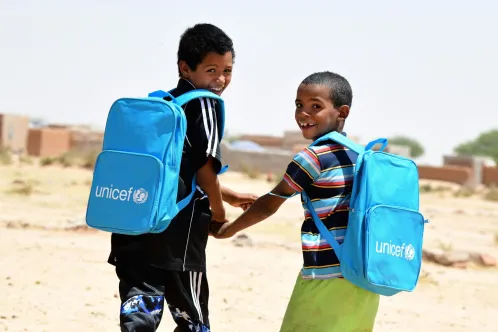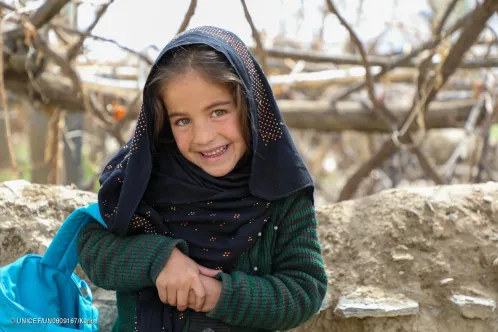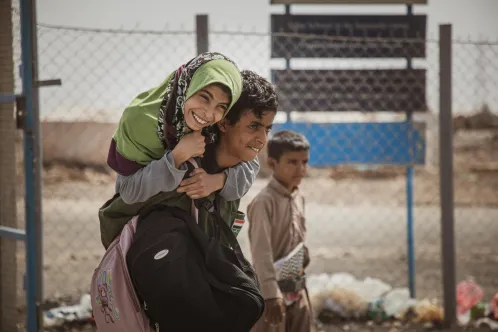Ensuring children’s right to have a legal identity
One in four children born today do not have a birth certificate. Without legal proof of identity, children are left uncounted and invisible to their governments. They are likely to miss out on essential healthcare, education and child protection services while growing up.
Every child has a right to a legal identity. UNICEF is working to help governments strengthen their civil registration systems and make information and services related to birth registration widely available to communities around the world.
The importance of birth registration
Without a birth certificate, children are more vulnerable to violence, abuse and exploitation. They risk being trafficked, recruited into armed forces, or forced into early marriage or child labour. Since they have no proof of their age, they may be prosecuted as adults and exposed to even more violence.
Children without birth certificates face uncertain futures. They can be cut off from routine vaccinations and other healthcare services. They may be prevented from receiving social assistance, attending school or registering for exams. As a result, their future job prospects become extremely limited, making them more likely to live in poverty.
A birth certificate can also help protect migrant and displaced children from family separation. Without it, these children face a greater risk of statelessness since they have no legal proof of nationality or legal ties to any country.
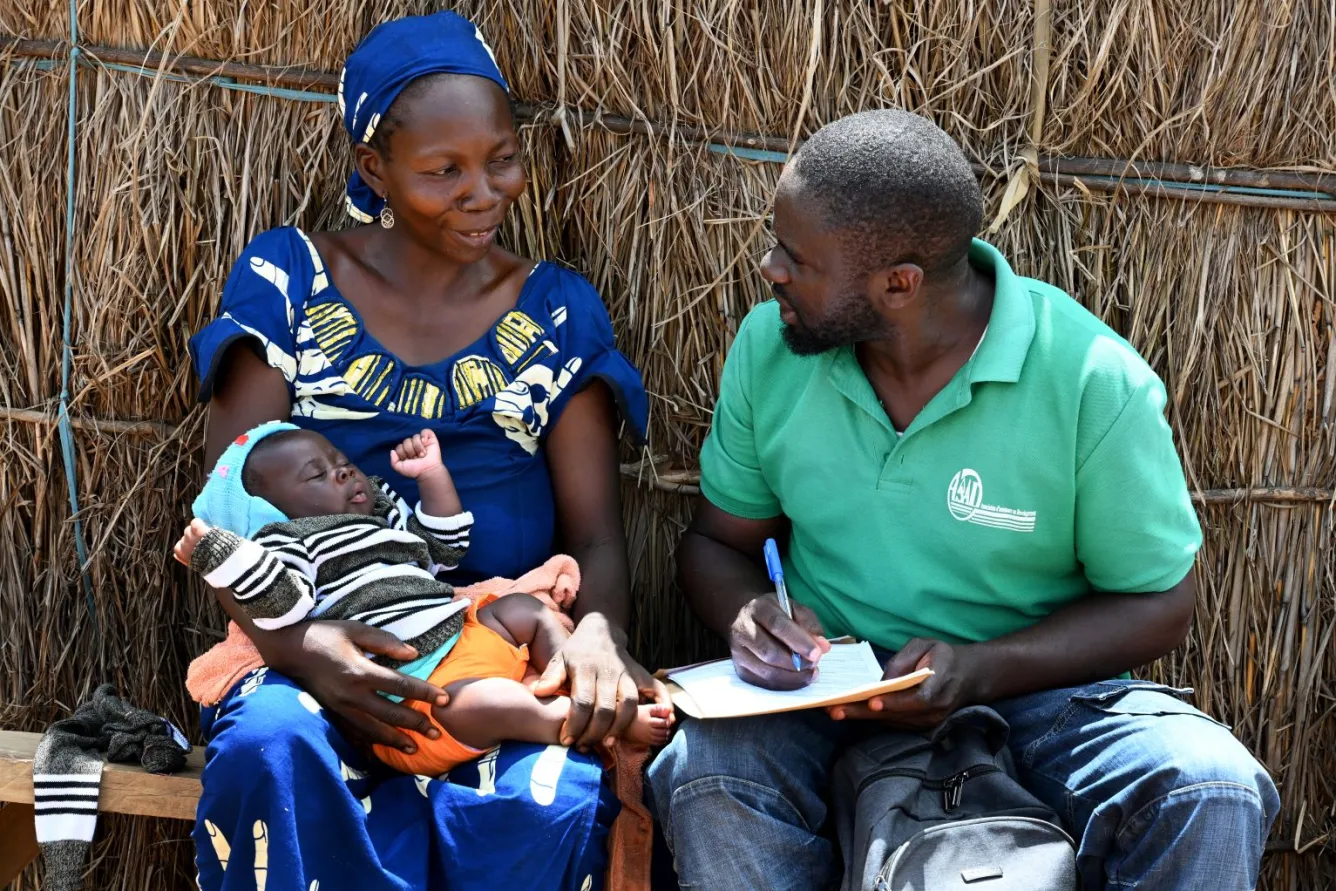
UNICEF’s work in birth registration
UNICEF has been a key global player in birth registration for over thirty years. Our work focuses on helping governments strengthen their civil registration systems, including:
- Increasing the number of service points where children can be registered;
- Developing or updating birth registration policies;
- Fostering innovation in registration technology;
- Increasing community awareness about birth registration.
We also work across sectors like health, education and social protection to make information and services related to birth registration widely available. This is done through various means – including immunization drives, school enrolments and cash transfer programs in places like hospitals and health centres.
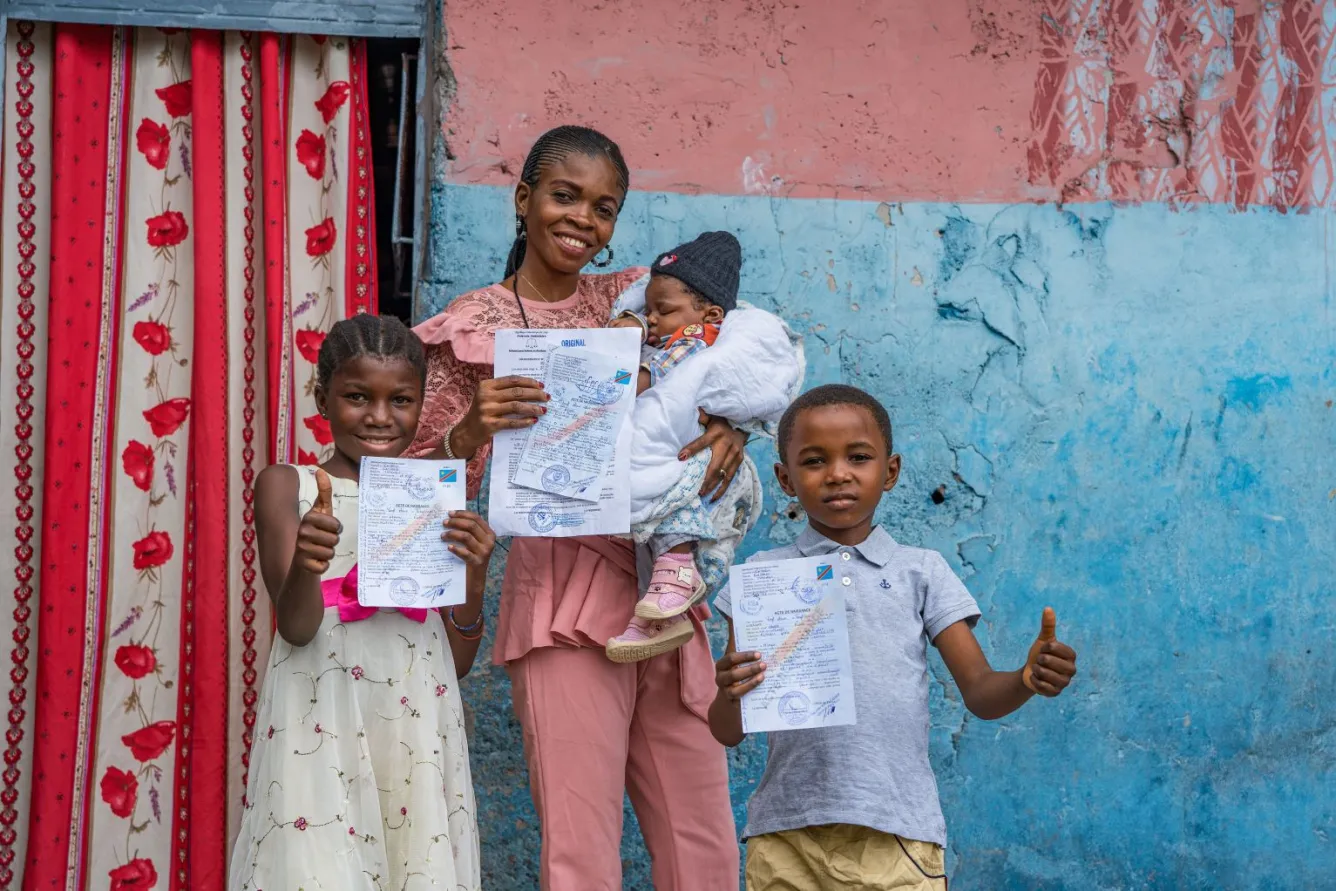
Common questions about birth registration
What is birth registration?
Birth registration is the process of recording a child’s birth. It is a permanent and official record of a child’s existence, and provides legal recognition of that child’s identity.
It establishes a legal record of:
- Who you are
- Who your parents are.
- Where you were born
- How old you are
Birth registration is required for a child to get a birth certificate – their first legal proof of identity.
What is the difference between birth registration and a birth certificate?
Birth registration is the process of officially logging a birth with a government authority, and a birth certificate is the paper issued to the parent or caregiver because of this process. A birth certificate proves that registration has occurred.
Birth registration and birth certificates ideally go hand in hand. However, because the processes for issuing birth certificates can vary depending on location, a child might be registered but never receive a birth certificate.
What happens if a child isn’t registered?
Birth registration is the only legal way for a child to get a birth certificate. This legal proof of identity can help protect children from violence, abuse and exploitation.
Without a birth certificate, children can miss out on essential child protection, healthcare and education services while growing up. It can also help protect migrant and displaced children against family separation, trafficking and illegal adoption.
How many children aren’t registered?
On average, one in four or 166 million children under five are not registered. Of these 166 million children, half live in just five countries: Democratic Republic of the Congo, Ethiopia, India, Nigeria and Pakistan.
Even when children are registered, they may not have proof of registration. An estimated 237 million children under five worldwide currently do not have a birth certificate.
Why aren’t all children being registered at birth?
Many barriers exist that prevent children from being registered at birth, including:
- New parents may lack information on how or why to register the birth of their child;
- The nearest registration facility may be very far away;
- Families cannot afford to travel or pay the registration fees.
Certain ethnic and religious minorities have lower birth registration rates than the national average. This may be because their culture places an emphasis on other customs – like naming ceremonies – or because they are live in remote areas or unrecognized by their governments.
And in a number of countries, women do not share the same rights as men when it comes to registering their children. Some are unable to register their children at all, while others may only be able to do so with the father present.
How can birth registration rates be improved?
Legal identity, including birth registration, is a human right. For every child to fulfill this right, governments must improve and strengthen civil registration systems.
Improving birth registration rates can be done in a number of ways, including:
- Eliminating registration fees and late fees;
- Giving cash grants to families who register their children;
- Increasing the number of trained registrars;
- Sending registrars to remote areas in mobile registration units.
What progress has been made on birth registration?
The world has made substantial progress on birth registration over the past 20 years. Today, around 75 per cent of children under 5 are registered, compared to 60 per cent in 2000. Without this progress, an additional 100 million children would be unregistered today.

